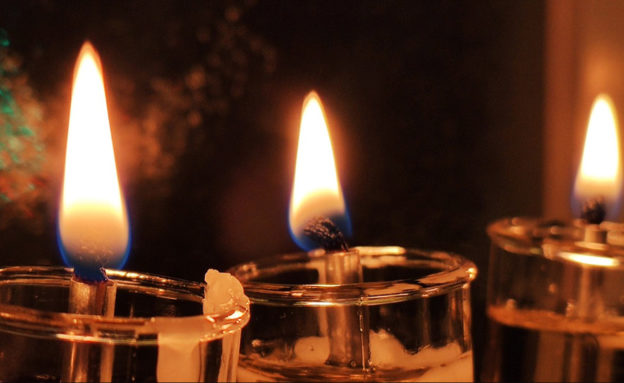How do we know God’s Will? Do we consult with a couple of people then go with our gut? Roll dice? Allow circumstances to lead the way? There are lots of events in our life that require us to consider how our actions should align with God’s Will, and that was just as true in Moses’ day.
On the High Priest’s outfit was a breastpiece of judgement, which bore Israel’s names close to his heart. Inside that breastpiece were two items called Urim and Thummim, used in special situations to determine God’s Will. While we do not have access to these items today, the general principles still apply. Our actions should line up with God’s Will, and God still guides us today.
The High Priest was the only person who came directly into the special presence of God, in the Most Holy Place in the Tabernacle. Because the High Priest had special access, his clothes were of a higher quality.
On top of his linen robes and an ephod, was a “breastpiece of judgement” made in a similar style and fashion to the ephod (v.15). This was a piece of fabric which made a square, about 23 centimetres square (v.16).
Because it was worn in the special presence of God, dwelling above the Ark of the Covenant, it was lined with special jewels which dazzled in different colours, all woven together into the breastpiece along with gold filigree (vv.17-20). Interestingly, these jewels were found in the Garden of Eden (Ezekiel 28:13) and will decorate the New Jerusalem (Rev. 21:19-20) when God returns to make all things new.
As with the shoulder of the Ephod, the breastpiece contained the names of the Twelve Tribes of Israel, inscribed onto each of the precious stones (v.21).
The breastpiece was securely fastened to the Ephod with golden rings and chains, which held it to his chest (vv.22-8) and not swinging around loosely, casually knocking over the Lampstand with its burning oil lamps, or brushing the Bread of the Presence to the floor on his way into the Most Holy Place.
Holding the breastpiece close to his chest not only ensured the continued orderly arrangement of the items within the tabernacle, but also served a symbolic purpose. The engraved stones ensured that when the High Priest wore the breastpiece he would “bear the names of the sons of Israel in the breastpiece of judgment on his heart” (v.29). Close to his heart, he would recall the needs of Israel, just as he also bore them upon his shoulders (v.12).
Not only would the High Priest bear Israel close to heart, but when he went into the tabernacle it would “bring them to regular remembrance before the Lord” (v.29). Since God knows all things, this is a symbolic remembrance rather than literal. It is similar to prayer: God already knows what we want or need, but still has us ask anyway.
Inside the breastpiece of judgement sat the Urim and Thummim, which were objects for determining God’s Will (v.30). We know little of them today, except that the names meant Light and Perfection. However they were used, they allowed Israel’s leader to discern God’s Will, likely on important decisions affecting God’s People.
These items were borne close to the High Priest’s heart, because discerning God’s Will was an important part of being God’s People. For the decisions that really counted, where they needed to be in “lockstep” with God, God provided the Urim and Thummim to enlighten and reveal God’s perfect will.
We do not have the Urim and Thummim today, and so the Church or a Christian political leader cannot consult them on matters of great importance. Like the everyday Israelite, they and we have to rely on leading from other sources.
As with much of the ceremonies in the Old Testament, they were provided as a teaching tool to Israel to encourage them to rely on God and to look forward to Jesus, their and our Messiah.
How can we discern God’s Will? We can pattern our life and behaviour through growing in our knowledge of God’s Word, which reveals God’s character to us to reflect back. And when we pray and submit ourselves to the guidance of the Holy Spirit, we are more likely to act on the big things (and by pattern of behaviour, the little things) after God’s Will.
Christ demonstrated this in his prayerful submission to God, and his reliance on God’s Word. And Jesus bore our names and God’s Will close to heart in all his thoughts and deeds, saving us from our sins as our deliverer.
Enabled by Christ’s sacrifice to enjoy God’s presence and guidance, we too can seek to live in a way that bears God’s Will close to our hearts. Whether in the big questions of life, or the little ones, when we seek to pattern our lives after God’s revelation and Christ’s example in reliance on the Holy Spirit, we will find ourselves truly acting in the lights and perfections of God’s Will.

